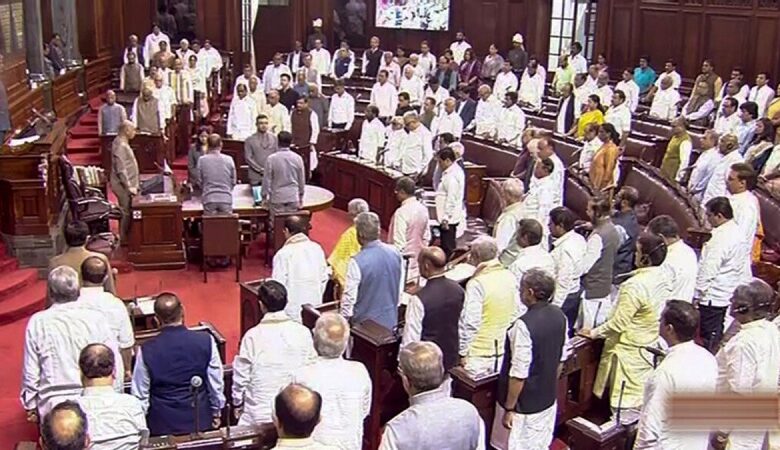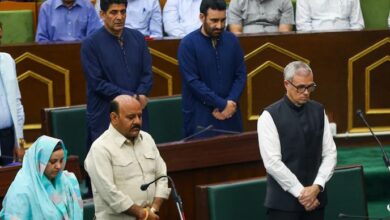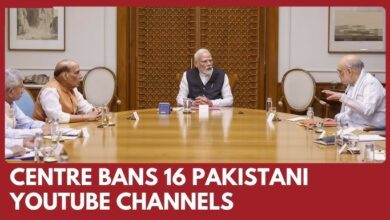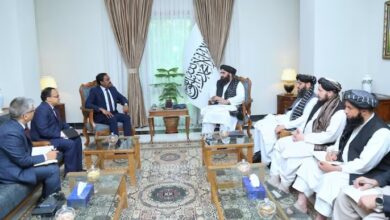Opposition Forces Rare Debate on Manipur Issue in Rajya Sabha Under Rule 267

In an unprecedented turn of events, the Rajya Sabha witnessed a heated session on Monday as the government and the opposition clashed over the Manipur issue. The government had initially agreed to a discussion at 2 pm, but the opposition, asserting its stance, demanded the debate only under Rule 267 of the House, which led to the adjournment of proceedings till noon.
Rule 267 of the Rajya Sabha rulebook, a rarely invoked provision, allows for the suspension of the day’s business to engage in a debate on any issue proposed by a member. Under this rule, members can bring critical matters to the forefront, emphasizing the gravity of the Manipur issue at hand.
The Rajya Sabha Chairman, Jagdeep Dhankhar, disclosed that he had received an overwhelming 65 notices under Rule 267. This astounding number underscored the seriousness of the matter and demonstrated how the Manipur issue resonated across party lines, demanding urgent attention and debate. Interestingly, Rule 267 had been evoked only once since 2018, indicating the rarity of such an occurrence.
The Manipur issue, a long-standing concern, has been a subject of deep contention between the government and the opposition. The latter has been vocal in demanding comprehensive discussions and solutions to address the challenges faced by the region. The demand for invoking Rule 267 was a strategic move to ensure that the matter received the utmost attention, and the voices of those affected were not overshadowed by other parliamentary business.
The government’s initial agreement to discuss the Manipur issue demonstrated a willingness to engage in dialogue, but the opposition saw Rule 267 as the most effective means to ensure an extensive and focused discussion. The opposition’s insistence on this rule highlighted their determination to shed light on the problems plaguing Manipur and push for viable solutions.
As the papers were laid before the House, tension escalated, and both sides presented their arguments passionately. The Chairman acknowledged the significance of the matter and assured all members that the Manipur issue would be given the attention it deserved. The Chairman’s assurance helped create an atmosphere of constructive dialogue rather than acrimonious debate.
The Manipur issue, with its complex historical, political, and social dynamics, necessitates a comprehensive approach. Members from different parties took the opportunity to voice their concerns and share insights into the challenges faced by the region. This diverse range of perspectives enriched the debate and contributed to a more holistic understanding of the issue.
Beyond the political tussle, it was evident that the entire House recognized the urgency of addressing the Manipur issue. Regardless of party affiliations, there was a collective determination to find a path forward for the betterment of Manipur and its people.
The debate under Rule 267 succeeded in raising awareness about the plight of Manipur and its people. It brought the issue into the national spotlight and generated public interest and concern. Citizens across the country closely monitored the developments and expressed solidarity with the people of Manipur.
The rare usage of Rule 267 demonstrated its potency as a parliamentary tool to prioritize pressing matters of public interest. It allowed for a focused and uninterrupted debate, providing ample time for members to delve into the intricacies of the Manipur issue.
In the aftermath of the debate, the government assured the House that it would take concrete steps to address the challenges faced by Manipur. The opposition appreciated the government’s commitment and pledged to work together in finding solutions that would benefit the region and its people.
News Mania Desk /Agnibeena Ghosh ,31st July 2023






